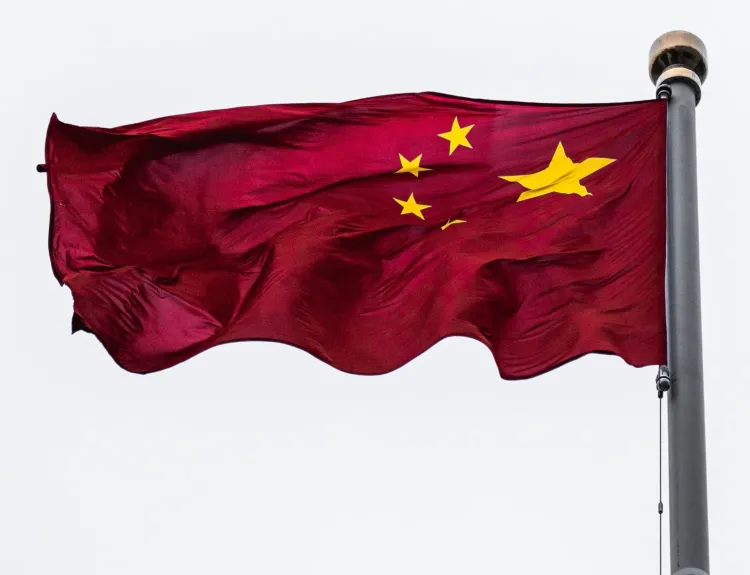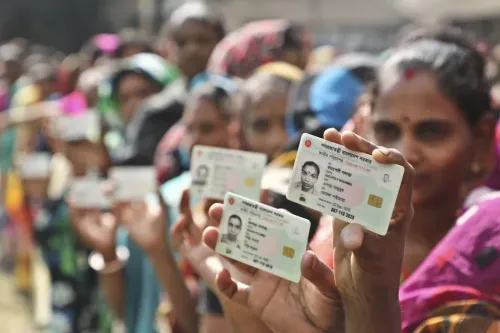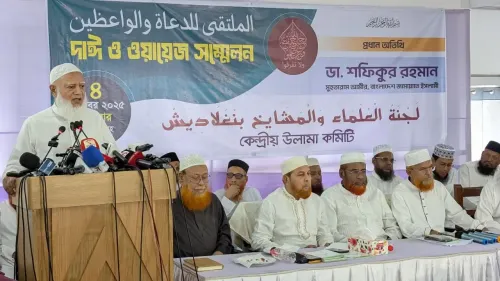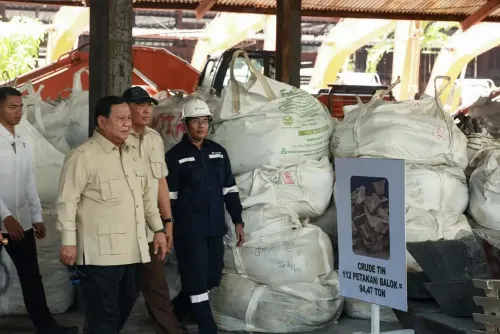Is China Engaging in Genocide and Systematic Abuses Against Uyghurs and Tibetans?

Synopsis
Key Takeaways
- Severe violations against ethnic minorities in China persist.
- Arbitrary detentions are widespread, enabled by broad laws.
- The Chinese government does not hold officials accountable for abuses.
- Cyber operations target ethnic minorities across borders.
- International pressure on China is crucial for change.
Washington, Aug 17 (NationPress) The US State Department's 2024 Country Reports on Human Rights Practices on China reveals that Beijing is perpetrating severe and systematic violations of the fundamental freedoms of ethnic minorities, including Tibetans and Uyghurs.
The report highlights issues such as arbitrary detentions, transnational repression, and extensive cyber surveillance, particularly focused on these ethnic groups.
This 42-page document emphasizes that genocide and crimes against humanity have occurred in China against predominantly Muslim Uyghurs and other ethnic and religious minorities in Xinjiang.
Evidence indicates that arbitrary arrests and detentions remain widespread in 2024, facilitated by laws that allow public security officers to detain individuals for extended periods without formal charges.
The report also reveals that former political prisoners and their families are often re-targeted, with many still imprisoned or subjected to various forms of detention. This includes Tibetan Buddhist monks Go Sherab Gyatso and Tenzin Khenrab, Tibetan entrepreneur Dorjee Tashi, and singers Lhundrub Drakpa and Trinley Tsekar.
Furthermore, it notes that Chinese authorities frequently place citizens under house arrest during sensitive periods, such as visits from senior foreign officials, plenary sessions of the National People's Congress, the anniversary of the Tiananmen massacre, and other sensitive anniversaries in Tibetan regions and Xinjiang.
According to the report, the Chinese Communist Party (CCP) and its agents are involved in acts of violence and intimidation against dissidents abroad.
These actions include threats, stalking, theft of personal property, and even physical assaults using flagpoles and chemical sprays.
There are credible allegations that China has pressured other nations to act unfavorably towards specific individuals or groups.
Additional intimidation tactics against protesters overseas were documented in a report by the Hong Kong Democracy Council and Students for a Free Tibet.
Moreover, leaked documents from the Chinese cybersecurity firm i-Soon (Aixun) in February revealed extensive cyber operations conducted for the Ministry of Public Security and other state security agencies.
These cyber campaigns reportedly targeted overseas organizations associated with ethnic minorities, especially Uyghurs in Central and Southeast Asia, and the Central Tibetan Administration (CTA) in Dharamshala, India.
According to the State Department report, these leaks further illustrate the CCP's global ambition to suppress dissent beyond its borders.
Additionally, the report claims that the Chinese government has not taken credible actions to identify or penalize officials responsible for human rights violations.









